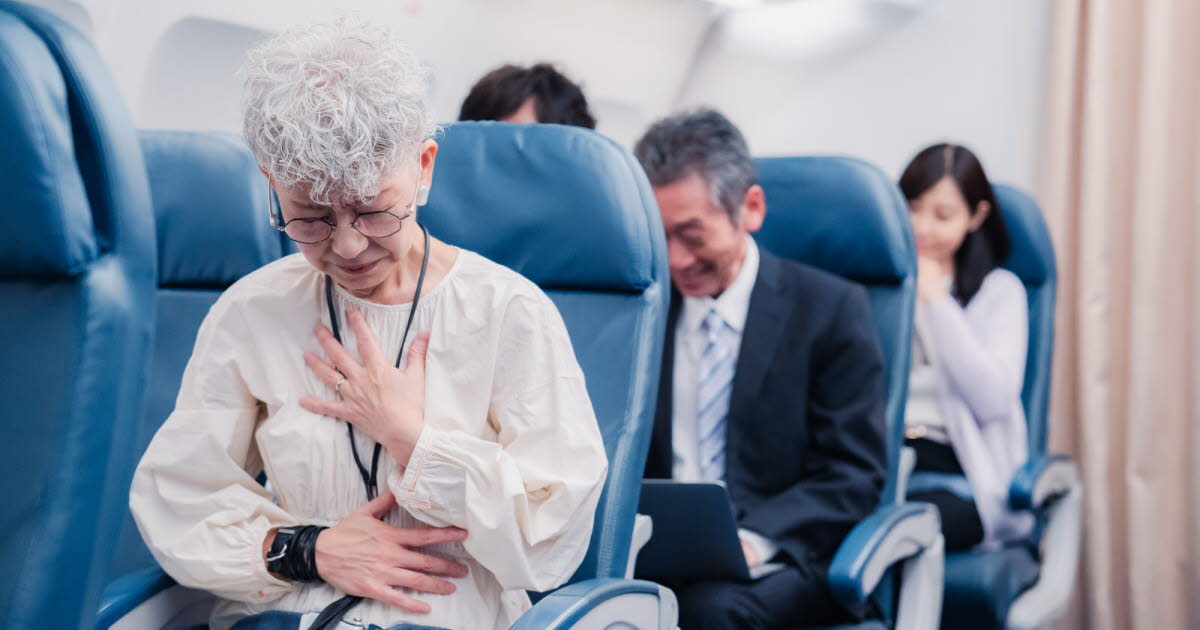Flatulence is defined in the Dictionary of the National Academy of Medicine as “ accumulation of air in the stomach or intestines.”
Is there “caused by painful feelings of flatulence in the abdomen attributed by the subject to an excess of digestive gases and sometimes accompanied by belching”.
The occurrence of these gases arises mainly from the fermentation of molecules from food, called oligosaccharides.
The pressure that expands…
By plane, the production of these digestive gases seems to be greater. This feeling is certainly caused by sitting for a long time, but it is mainly explained by the air pressure in the cabin, which is much lower than when dry.
A rapid reduction in pressure will thus lead to the expansion of gases in our intestine. Somehow they take up more space, hence the feeling of pressure: bloating, which can therefore lead to gas…
In 2019, the Australian team looked at the health of airline members, particularly through a questionnaire focusing on sleep and diet.
Among the responses, more than six in ten people surveyed (62%) said they experience regular, “often” or “very often” episodes of bloating and flatulence when flying.
A double problem
However, this problem of flatulence on airplanes runs into a dual problem: health and social. Holding in farts exposes you to gut pain and potentially serious discomfort.
What inconvenience will be transferred to your cottage neighbors if you decide to release them! In the absence of real decision-making, science would be more inclined to release its own farts: to avoid pain, but also, as a 1975 study noted, to prevent the potential occurrence of inflammation in diverticula, these small cavities that form on the surface of the colon.
What to do ?
Gas release is also what the Danish team recommends in a 2013 paper, with advice also given to airlines.
The authors encourage them to slip activated carbon into their seats, a substance apparently capable of neutralizing unpleasant odors and thus improving the comfort of all passengers.
On the safer side, avoid foods that promote gas during meals on the plane and the day before your trip to reduce the risk of gas. This is the case:
- sodas and other carbonated drinks to be avoided in favor of plain water;
- legumes (lentils, etc.);
- certain fruits, such as apples or pears;
- certain vegetables such as cabbage and other broccoli;
- dishes rich in garlic and/or onions;
- white bread and wheat flour.

